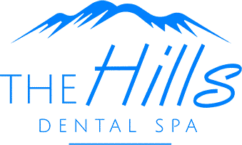You may think only children get cavities. The truth is, all of us are at risk of tooth decay our whole lives. By following a healthy at-home oral health routine, seeing your dentist regularly, and making smart food choices, you can lower your risk of getting a cavity.
What is tooth decay? Tooth decay is often referred to as a cavity, and is a disease that damages and breaks down teeth. A tooth has an outer layer (the enamel), a middle layer (dentin), and the center (pulp). The deeper a cavity gets, the more layers affected by decay, and the worse the damage to the tooth.
Tooth decay is a serious public health problem. Did you know, it is 4 times more common than asthma in teens age 14 to 17 years? Untreated decay can lead to pain, loss of teeth, and even loss of confidence. People with tooth pain often cannot get through their daily routines because of the discomfort. They cannot eat or sleep properly, and can miss days of work or school.
So, what causes tooth decay? Bacteria in the mouth feed on the sugars found in foods and drinks. This bacteria produces acids that attack the tooth surface. The more these sugars are consumed, the more acid attacks the teeth, eating away at the tooth and causing decay. When a hole is formed in the tooth, this is called a cavity. Once a small hole is formed, the tooth cannot heal itself, nor can your body prevent further damage on it’s own.
This bacteria thrives on all kinds of sugars, not just those found in candies. Sodas, sports drinks, flavored waters, fruit juices, and even milk, all have sugars that produce acids. Studies even show that salt has a similar affect on teeth by creating it’s own acid to break down the tooth surfaces.
As bacteria builds up on the teeth, they form a sticky film we call plaque. The sticky plaque actually holds the acids closer to the teeth and causes more rapid damage to the tooth structure. Keeping your teeth clean can help reduce cavities. Brushing after a snack or meal will help to rinse away the bacteria that causes these acids. Regular brushing and professional dental hygiene cleanings will reduce the tartar buildup in your mouth, and keep your teeth more healthy.
So, who gets tooth decay? Really, anyone can. People of all ages can get cavities. The risk may increase for people who: often sip and snack on foods and drinks high in sugars and sodium; drink water not fortified with fluoride; are suffering from dry mouth due to medications or medical conditions; have weakened tooth enamel due to genetics or a childhood illness; don’t brush at least twice a day, and floss at least once; and who don’t visit their dentist regularly for cleanings and checkups.
You may be wondering if tooth decay can be passed on from person to person. While the decay itself cannot be transfer from one person to another, the bacteria can be shared. Parents may pass along harmful bacteria to infants and children . Bacteria can be passed by kissing, sharing a cup or straw, or anything else that can transfer a drop of saliva from one mouth to another.
How can cavities be prevented? You may be able to easily avoid frequent sipping and snacking on sugary foods and drinks. When you do indulge in a candy bar or a sports drink, brush your teeth afterwards. If you can’t brush, consider swishing and rinsing your mouth with water. Brush at least twice a day. If you can’t brush after a meal, consider chewing a sugar-free gum. Chewing gum increases your saliva flow and can aid in washing away bacteria. Flossing once a day will help remove buildup from between the teeth. Be sure your drinking water is fortified with fluoride to help strengthen your tooth enamel. And finally, visit your dentist and dental hygienist regularly. Your dentist can catch a cavity when it is small. A small cavity is quicker and easier to repair, and costs much less for treatment.
You teeth can last a lifetime if you take good care of them!


